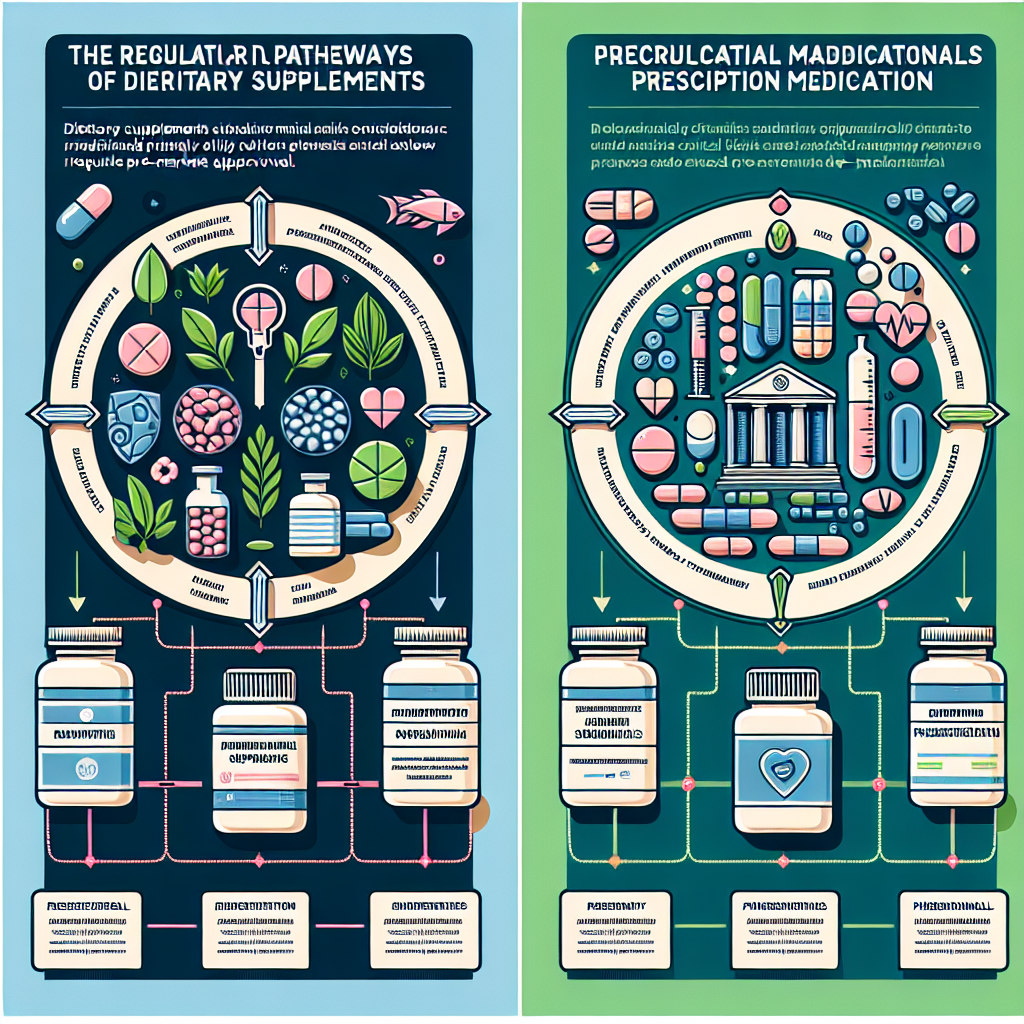In today’s health-conscious marketplace, understanding what constitutes a dietary supplement isn’t just important for consumers—it’s absolutely essential for manufacturers and developers in the nutritional products industry. The distinction between supplements, conventional foods, and drugs directly impacts how products are developed, marketed, and regulated. For forward-thinking supplement manufacturers and product developers, this knowledge isn’t merely academic—it’s a competitive advantage that drives innovation while ensuring compliance.
The dietary supplement definition established by regulatory bodies creates the framework within which the entire industry operates. By fully understanding these parameters, nutritional product developers can navigate the complex landscape of ingredients, claims, and regulatory requirements with confidence. This knowledge empowers manufacturers to make informed decisions about product formulations, marketing strategies, and quality control measures that align with legal requirements while meeting consumer expectations.
What Exactly Are Dietary Supplements According to the FDA?
The FDA’s definition of dietary supplements establishes the legal framework that determines how these products are regulated, marketed, and sold in the United States.
The FDA defines dietary supplements as products intended to supplement the diet that contain one or more dietary ingredients. According to the Dietary Supplement Health and Education Act (DSHEA) of 1994, dietary supplements are products taken by mouth that contain a “dietary ingredient” intended to supplement the diet. These ingredients can include:
- Vitamins
- Minerals
- Herbs or other botanicals
- Amino acids
- Enzymes
- Concentrates, metabolites, constituents, or extracts
Importantly, the dietary supplement definition emphasizes that these products are not conventional foods and are not intended to be the sole item of a meal or diet. Instead, they come in various forms such as tablets, capsules, powders, softgels, gelcaps, or liquids.
For product developers and manufacturers, this definition sets clear boundaries around what can be marketed as a dietary supplement. Understanding these parameters is crucial for innovation within legal frameworks. When developing new products, manufacturers must ensure their formulations align with the dietary supplement definition while meeting market demands for effectiveness.
The classification also directly impacts how products are positioned in the market. Unlike drugs, dietary supplements cannot claim to diagnose, treat, cure, or prevent diseases. Instead, they can make structure/function claims that describe how ingredients might affect the body’s structure or function. For example, “calcium builds strong bones” is acceptable, while “calcium prevents osteoporosis” would violate regulations.
Regulatory Framework: How Supplements Differ from Foods and Drugs
The regulatory framework for dietary supplements occupies a unique middle ground between conventional foods and pharmaceuticals. Under DSHEA, dietary supplements are regulated as a category of food, not drugs. This distinction has profound implications for the industry.
Unlike drugs, dietary supplements do not require pre-market approval from the FDA. While pharmaceutical companies must conduct extensive clinical trials to prove safety and efficacy before bringing a drug to market, supplement manufacturers are responsible for ensuring their products are safe before marketing them. The FDA only takes action against unsafe dietary supplement products after they reach the market.
This regulatory approach offers both opportunities and responsibilities for nutritional product developers:
- Faster path to market: Products can be developed and launched without lengthy approval processes
- Lower development costs: Without required clinical trials, development expenses are significantly reduced
- Greater responsibility: The burden of ensuring product safety falls primarily on manufacturers
- Post-market surveillance: Manufacturers must monitor and report adverse events
Enterprise businesses requiring strategic ingredient partnerships must understand these regulatory distinctions when developing new products. The framework influences everything from ingredient selection and formulation to manufacturing practices and marketing claims.
Small businesses and R&D companies benefit from knowing that the FDA requires supplements to be produced according to Good Manufacturing Practices (GMPs), which include standards for cleanliness, quality control, and accurate ingredient listings. These requirements ensure a level playing field while protecting consumer safety.
Biological Effects and Scientific Evidence: The Heart of Supplement Credibility
Scientific evidence provides the foundation for effective supplements, giving manufacturers a competitive edge while ensuring products deliver genuine benefits to consumers.
While dietary supplements don’t require the same rigorous pre-market testing as pharmaceuticals, scientific evidence remains the cornerstone of credible supplement development. Forward-thinking supplement manufacturers recognize that evidence-based formulations inspire consumer confidence and drive market acceptance.
The biological effects of dietary supplements vary widely based on their ingredients, dosages, and delivery systems. Some vitamins and minerals have well-established biological pathways and clear evidence of effectiveness, while many botanical ingredients have more complex interactions with the body and varying levels of scientific support.
“Only a tiny fraction of the dietary supplements on the market have been rigorously tested for efficacy or safety,” notes Dr. JoAnn Manson, chief researcher at a leading medical institution. notes Dr. JoAnn Manson, chief researcher at a leading medical institution. This reality creates both challenges and opportunities for health-conscious product manufacturers who prioritize evidence-based formulations.
Industry leaders distinguish themselves by investing in research that supports their specific ingredient combinations and dosages. This commitment to science not only enhances product credibility but also provides competitive advantages in a crowded marketplace. For nutritional product developers, understanding the current state of scientific evidence helps identify promising ingredients and avoid those with questionable benefits or safety concerns.
The scientific foundation behind dietary supplements directly impacts how they’re perceived by healthcare professionals, who increasingly serve as gatekeepers for consumer supplement choices. Supplements backed by solid research are more likely to receive recommendations from doctors, nutritionists, and other healthcare providers—a crucial channel for many supplement brands.
Consumer Awareness and Manufacturer Responsibility
In the supplement marketplace, consumer education represents both a challenge and an opportunity for manufacturers. Unlike prescription medications, which come with physician guidance, consumers often make supplement choices independently, relying on marketing, online research, or word-of-mouth recommendations.
This reality places a special responsibility on supplement manufacturers to provide clear, accurate information about their products. The dietary supplement definition established by regulators provides boundaries, but manufacturers must go beyond bare minimum compliance to truly serve consumers.
Health-conscious product manufacturers can differentiate themselves through transparent communication about:
- The specific intended uses of their supplements
- Realistic expectations regarding benefits
- Potential interactions with medications
- Appropriate dosages and usage guidelines
- The scientific evidence supporting ingredients
By educating consumers about the differences between dietary supplements and medications, manufacturers build trust while protecting consumers from unrealistic expectations or misuse. This educational approach aligns with the regulatory intent behind the dietary supplement definition, which seeks to provide access to beneficial products while preventing misleading claims.
For enterprise businesses requiring strategic ingredient partnerships, consumer education also creates opportunities to showcase quality ingredients and rigorous testing protocols. By clearly communicating how their products complement—rather than replace—healthy lifestyle choices, manufacturers position supplements as part of a holistic approach to wellness.
FDA Market Oversight: Labeling, Claims, and Transparency
The FDA’s regulatory oversight ensures consumers receive accurate information about supplements through carefully controlled labeling and claims requirements.
While the FDA doesn’t pre-approve dietary supplements before marketing, it maintains significant oversight through labeling requirements and post-market monitoring. Understanding these requirements is essential for supplement manufacturers who want to avoid regulatory issues while building consumer trust.
The FDA requires dietary supplement labels to include:
- The statement “dietary supplement” or equivalent
- A Supplement Facts panel listing all ingredients and their amounts
- The name and address of the manufacturer or distributor
- Complete ingredient list, including excipients and fillers
Beyond these basics, the FDA closely regulates the claims that can appear on supplement labels and in marketing materials. There are three main types of claims:
- Structure/function claims: Describe how ingredients affect normal body structure or function
- Health claims: Connect nutrients to reduced disease risk (requires significant scientific agreement)
- Qualified health claims: Similar to health claims but with qualifying language when evidence is emerging
These labeling requirements ensure transparency and help consumers make informed choices. For nutritional product developers, mastering these requirements ensures compliance while maximizing the impact of permissible claims.
At NutraAeon, we embrace these transparency standards as part of our core philosophy. We believe that complete documentation, certificates of analysis, and full supply chain visibility from source to delivery aren’t just regulatory requirements—they’re essential components of building trust with both manufacturers and end consumers. This commitment to transparency mirrors the intent behind the FDA’s oversight framework.
The Importance of Quality Sourcing in Supplement Manufacturing
The dietary supplement definition establishes what products can be marketed as supplements, but it doesn’t address the crucial issue of ingredient quality. This is where partnership with a reliable ingredient supplier becomes essential for manufacturers committed to excellence.
The quality of raw materials directly impacts the safety, efficacy, and consistency of finished supplements. For health-conscious product manufacturers, sourcing decisions represent one of the most significant factors in product performance and consumer satisfaction.
Quality ingredient sourcing involves:
- Verification of identity and purity through analytical testing
- Assessment of active compound concentrations
- Evaluation of contaminants like heavy metals, pesticides, or microbes
- Traceability throughout the supply chain
- Consistency between batches
When manufacturers partner with ingredient suppliers like NutraAeon, they gain access to premium nutritional ingredients that meet or exceed regulatory requirements. Our industry-leading testing protocols and rigorous quality control for every ingredient ensure that manufacturers can develop products with confidence.
Small businesses and R&D companies particularly benefit from strategic ingredient partnerships that provide technical expertise along with quality materials. These relationships empower formulations with innovative ingredient solutions while navigating the complex regulatory landscape defined by the dietary supplement definition.
Conclusion: Empowering Health Choices Through Knowledge and Quality
Understanding supplement regulations provides both compliance security and innovation opportunities for manufacturers committed to quality and transparency.
Understanding the dietary supplement definition established by the FDA does more than ensure compliance—it creates opportunities for innovation within appropriate boundaries. For forward-thinking supplement manufacturers, this knowledge forms the foundation for developing products that truly serve consumer wellness needs while meeting regulatory requirements.
As consumer interest in supplements continues to grow, the importance of quality, transparency, and scientific validity only increases. Manufacturers who embrace these values position themselves for long-term success in a competitive marketplace. They recognize that the dietary supplement definition isn’t just a regulatory hurdle but a framework that protects consumers while allowing innovation to flourish.
At NutraAeon, we’re committed to supporting manufacturers through every aspect of the supplement development process. Our comprehensive supply network and rigorous quality standards serve as the foundation for products that inspire consumer confidence. By providing premium nutritional ingredients that meet the demanding needs of today’s health-conscious consumers, we help manufacturers create supplements that stand out in the marketplace.
The journey from concept to successful dietary supplement requires navigating complex regulations, sourcing quality ingredients, and communicating effectively with consumers. By partnering with a global nutritional ingredients provider like NutraAeon, manufacturers gain not just premium ingredients but also the expertise needed to succeed in this dynamic industry. Together, we can create supplements that truly empower consumers to make informed health choices, advancing wellness while honoring both the letter and spirit of dietary supplement regulations.


